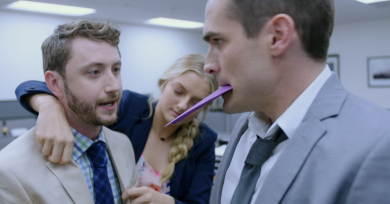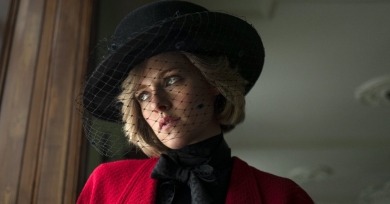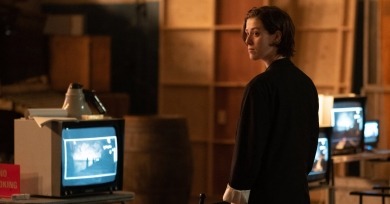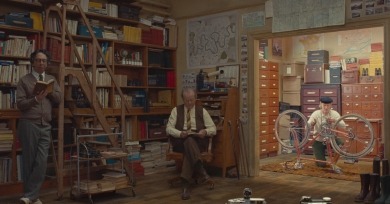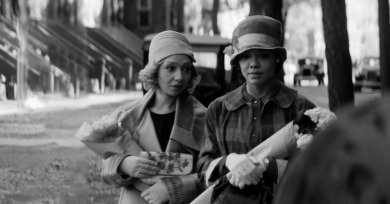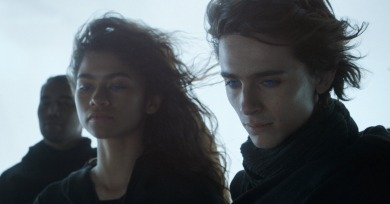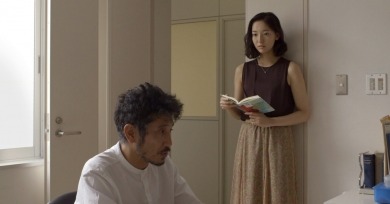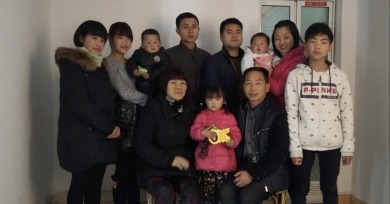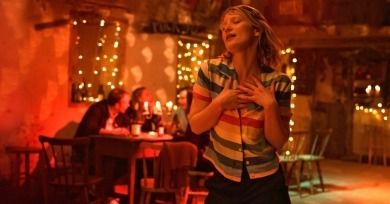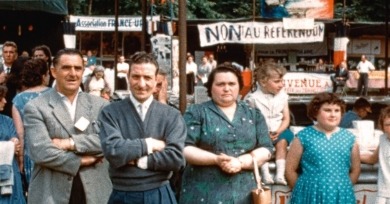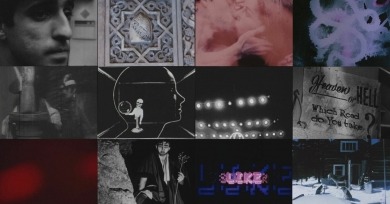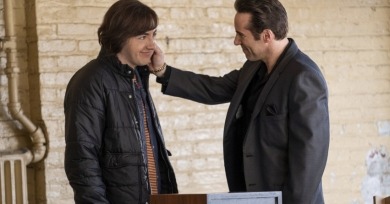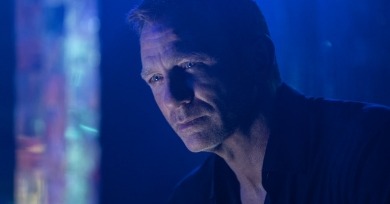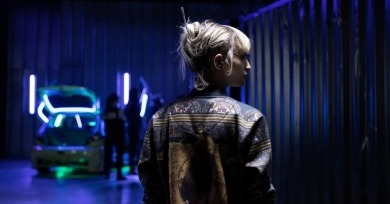Reviews
Everybody is the victim of a patriarchal, homophobic, and capital-driven society. It might sound terrifying or hilarious, depending on the point of view, but The Beta Test sends a plausible message: people are now just scrapeable data.
This Diana, portrayed by Kristen Stewart, is a woman in crisis; suffering from an eating disorder, dissected by the media, and a year away from divorcing the cheating father of her two children.
Part II builds on its predecessor in sophisticated ways. Hogg has said that the sequel can stand alone, and that may be true, but its almost noirish visual callbacks instill ghostly memories that, over time, transcend the ectoplasm of one person or film.
Circularity, stasis, and a certain, refined sense of stagnation as a state of tarnished grace: all are very much a facet of his aesthetic and sensibility, with characters trapped in variably self-insulating and self-destructive loops of passivity, inaction, and age-inappropriate behavior.
Who is watching and who is being watched are questions that merit serious scrutiny, and the answer to each reveals how much or little understanding of the situation at hand there is.
The challenge facing any critical exegesis of this or any other adaptation of Dune is that the world-building novel by Frank Herbert (elaborated upon in five sequels) drops you into a fictional universe so fully imagined that the uninitiated cannot help but be daunted.
Hamaguchi leaves room for a viewer to meet his characters in media res during situations augmented by his keen eye for detail, his unidealized world-building, and his understanding that even the most ordinary life is a vessel of passion and pain worthy of cinematic treatment.
Whether it is a movement or a blip on the radar, All About My Sisters demonstrates a new tendency focused on oral history and memory as a means of retaining or recovering the past.
What does it mean to create not just in the shadow but in the very kingdom of a towering genius, one who has left a permanent mark on so many who make movies? And what if this mark is less a blessing than a curse, something like a psychic stain that stifles the creative impulse rather than nurtures it?
Eribon aims to dignify working people, who he thinks have been ridiculed socially and taken for granted by those on the left, who once claimed to be their advocates. It is clear that he blames himself as well.
Transgression was the key to their sonic palette, driven by the collision of Cale’s sustained minimalism with Reed’s earthy lyricism on pain and desire.
I am left with the feeling that Many Saints is an expression of Chase’s archness run amok, rather than an invitation to immerse myself in a universe like that of The Sopranos, where, like our own, everyone feels put upon, can’t see past their pain, and therefore fail to notice the pain of others.
In the original series of books, James Bond was as blunt as the prose that brought him to life. He is an alcoholic, a womanizer, a killer, a tool. Those core elements have never really changed. But with the latest Bond film, No Time to Die, the 50-year franchise is going through some unusual transitions.
Ducournau’s latest film starts out hard but strips itself down to a level of softness and sentimentality, examining the armors we establish to shield ourselves from the world, and what it takes to transmute our steely exteriors into something more malleable.
